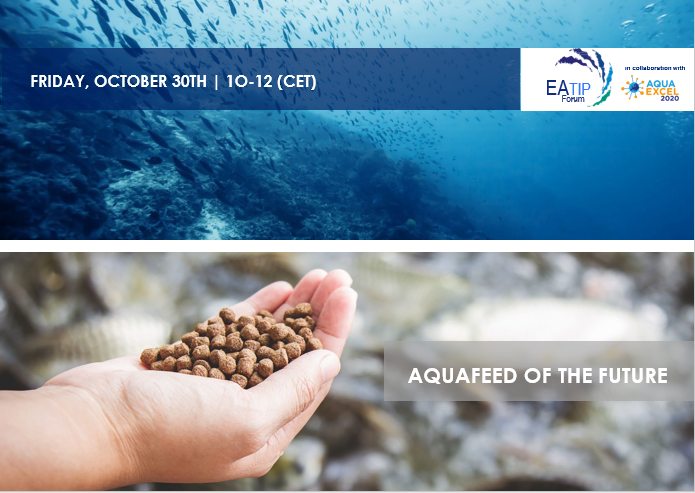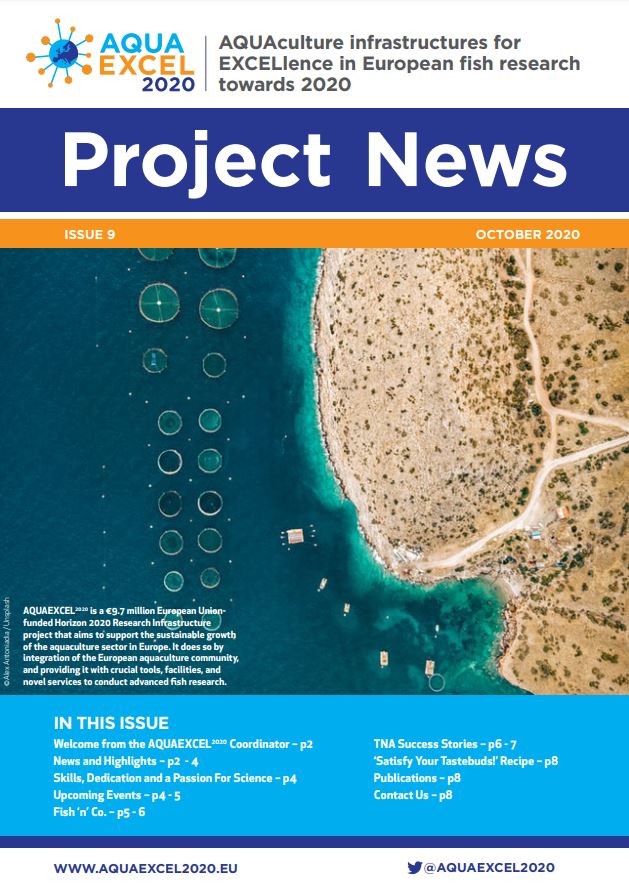SKRETTING JOINS THE EATIP MEMBERSHIP
/0 Comments/in _, From EATIP Members /by Catherine PonsAbout Skretting
Skretting is the global leader in providing innovative and sustainable nutritional solutions and services for the aquaculture industry. Skretting has production facilities in 19 countries on five continents, and manufactures and delivers high quality feeds from hatching to harvest for more than 60 species. The total annual production volume of feed is more than 2 million tonnes. The head office is located in Stavanger, Norway. Our mission is Feeding the Future.
About Skretting ARC
Skretting Aquaculture Research Centre (ARC) is the global research organization for Skretting. The research centre is based in Stavanger, Norway, and has further research units in Italy, Spain, China and Japan. Skretting ARC employs an international team of highly skilled specialists, supported by a substantial annual investment in advanced R&D. It performs research for all feed companies within Skretting, which produce more than 2 million tonnes of fish and shrimp feed on a global scale. Skretting ARC’s goal is to develop innovative solutions to support fish and shrimp farmers around the world and help Skretting maintain its leadership position at the forefront of the rapidly developing aquaculture industry.
MARINE DATA TO SUPPORT AQUACULTURE IN THE NORTH ATLANTIC
/0 Comments/in _, Copernicus /by Catherine Pons
A workshop by EATiP, Copernicus Marine and EMODnet
October 20th –21st, 2020
Virtual event (on invitation only)
The workshop will explore opportunities and applications for open source marine environmental data to support and innovate the aquaculture sector in the region. The goal is to investigate the feasibility and potential of setting up a collaborative platform with key stakeholders, to develop data products, tools and methodological approaches that can support the implementation of ecosystem based management of aquaculture, based on existing data.
Data centre representatives, Copernicus/EMODnet users, aquaculture producer, technology and service suppliers, coastal authorities, and modelers at regional level will gather at this 2-day regional-focused workshop. A parallel event in the Mediterranean area is planned to be held in 2021.
AQUAFEED OF THE FUTURE – WEBINAR OCTOBER 30TH
/0 Comments/in _, AQUAEXCEL2020, EATIP Forum /by Catherine Pons
The Farm to Fork Strategy aims to reduce the environmental and climate impact of animal production, and to support the ongoing transition towards more sustainable livestock farming. Therefore, the European Commission will facilitate the placing on the market of sustainable and innovative feed additives. EATiP acknowledges the limitations on specific resource supplies for compound feeds. In addition to contributing to the sustainability of the sector, it is critical that alternative feed ingredients should not reduce the dietary and health attributes of the final product. The aim of this webinar is to show the potential of new ingredients for aquafeed, to highlight innovations in the use of algae, insects and single-cell proteins as promising feed ingredients and to stimulate discussions and potential project collaboration among attendants.
The forum is organised in collaboration with the EU funded project AQUAEXCEL2020.
Agenda
Welcome by the EATIP
Opening talk.
The potential of new ingredients for aquaculture – a review of the current situation. Alex Obach | FEFAC / Skretting ARC
Insects
- Insects in Aquaculture market. Adriana Casillas | CEO in MEALFOOD Europe
- Effect of black soldier fly meal inclusion on production of pikeperch AQUAEXCEL2020. Laura Gasco | University of Turin
Single-cells
- Microfood for macrochallenges. Allan LeBlanc | CALYSTA
- LSAqua protein source for rainbow trout diets AQUAEXCEL2020. Paula Sole-Jiminez | LSAQUA
Algae
- Unlocking the magnificent potential of algae in functional aquafeeds. Jorge Dias | SPAROS LDA
Open discussion. Chair: Yolanda Molares, Cluster ACUIPLUS
Webinar conclusions

